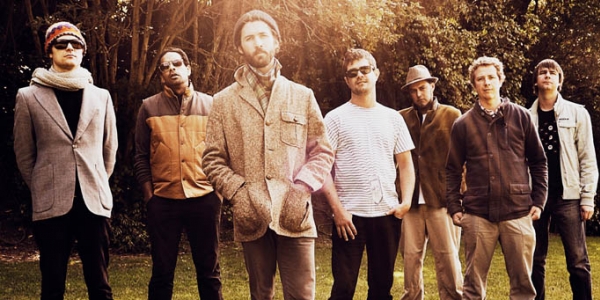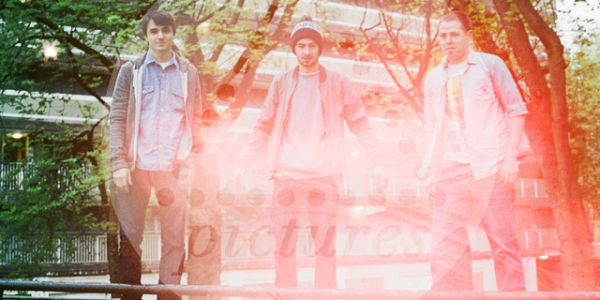“There were some incredible freedoms that we experienced recording this one,” says the affable Kiwi from his Wellington home. “There weren’t the kind of time constraints you usually have when you hire a studio for a month and spend that kind of money on it. Very often you’re trying to squeeze out a good album. And ultimately you want that album to capture a moment. This time around we took our time and did our thing in a humble studio. And in doing so, we allowed ourselves the opportunity to explore the songs a bit more. We could experiment a little bit and I think we were ultimately able to catch some key moments.”
It’s been a long time coming for The Black Seeds; their last full-length, Solid Ground was a landmark release, but there’s been a lot happening in The Black Seeds camp since.
“We’ve been touring around the world a wee bit, doing some tours throughout Australasia as well. Some of us are starting to have babies so it’s been interesting to have to juggle the touring commitments with our family commitments.”
So with more and more members of The Black Seeds starting families, has it been difficult for the band to adapt to these changes? “It is a bit of a challenge mixing the lifestyle we generally lead with what we need to do with our families,” admits Weir, acknowledging how the band has turned the corner in both their professional and personal lives. We’ve become more careful with scheduling tours and that sort of thing. I’d like to think we work pretty hard at it however.”
Dust And Dirt sees The Black Seeds corralling their 14 years of experience as a band. Personal messages are littered throughout the lyrics, relaying an ultimately hopeful message. “We’ve all had personal challenges, just like everyone else around the world,” says Weir.
“But our job is to express ourselves, and express our trials and tribulations and turn them into stories.Hopefully those stories can help people. Through ups and downs, breakups, that sort of thing, we try to go through things without the security that many people have with say, an office job or something like that. We don’t have that, but that’s the path we’ve taken.”
“We hope it’s reflected in our music,” he continues. “We find personal stories have always worked better for us as opposed to political prophecies. We just explore the themes and the feelings which are important to us.”
It’s clear from the video for the first single on Dust And Dirt, Pippy Pip that what’s important to The Black Seeds is maintaining a sense of family. A light-hearted video showcases children painting, building then ultimately controlling cardboard puppets of The Black Seeds. It doesn’t take a psychologist to understand where the importance now lies within the band.
Also important is the idea of expanding their ever-evolving sound. Long boxed into a very generic ‘reggae’ label, Dust And Dirt, and Pippy Pip in particular, hears the band getting much looser and exploring their soulful side.
“We definitely are,” says Weir, after being asked if the band is continually trying to branch out. “While we didn’t necessarily strive to do something different on this record, we definitely experimented more. It’s hard for us when we get put in the ‘reggae’ box. We’re essentially a party groove band, but we’re not your classic reggae band from the South Pacific. People generally get a different idea once they come to see us live.”
They’ve had the chance to bring their party-ready live set around the world. And while Weir maintains they’re not your average South Pacific band, there is a certain spirit of New Zealand that finds itself in the music of The Black Seeds almost intrinsically.
“It’s something that just happens naturally. We don’t try to add too much of a New Zealand flavour to things. It all comes from our personal styles anyway. I mean, I sing in a Kiwi accent, but we’re not trying to be Jamaican or American. Although we are highly influenced by Jamaican and American music. We just try to do our own thing and tell our own stories. I suppose there is something very distinct in our musical DNA. We don’t hide from it; we’re proud of it. We just make the music we want to play a thousand times.”
With a new record and new families in tow, it’s clear that’s exactly what the band is going to do.
“There’s been lots of opportunities for the band to break up and do different things, but it’s important for us to keep the family together. It’s really important for us to live in New Zealand right now with a few of us and our young families beginning to grow up.”
BY JOSHUA KLOKE







